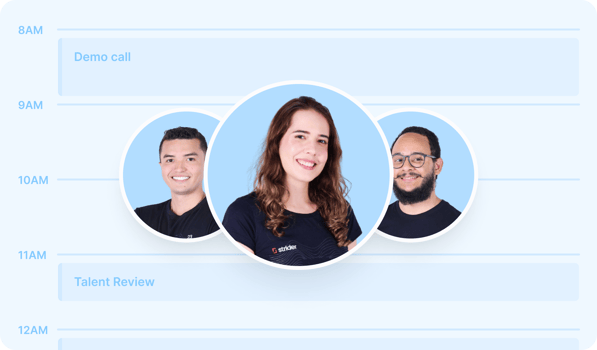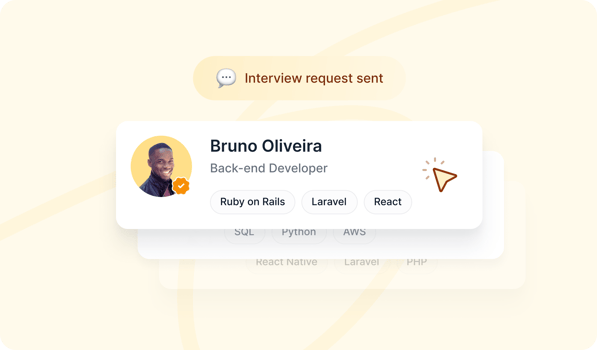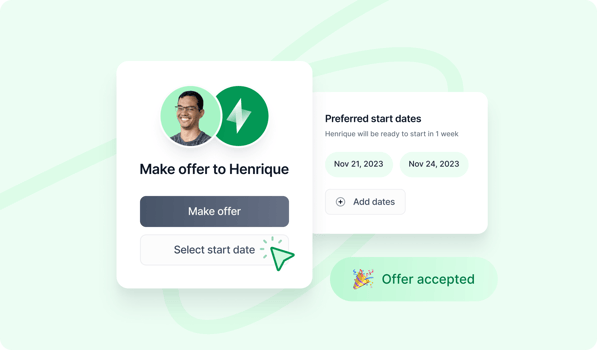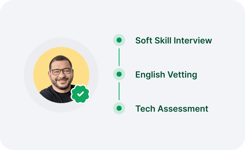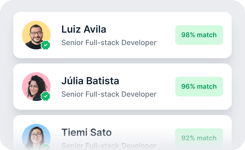Hire Remote Joomla Developers
Joomla is a free and open-source content management system (CMS) used to create dynamic and responsive websites and web applications. It is written in PHP and uses a MySQL or MariaDB database to store content. Joomla allows users to create, manage, and publish digital content easily, including articles, images, videos, and documents.
Joomla development is used to build websites ranging from simple blogs to complex e-commerce platforms. It offers a customizable and extensible architecture, allowing dedicated developers to add functionalities and features to their websites using templates, plugins, and extensions. With a vast community and marketplace, Joomla provides a rich ecosystem of resources and support for users and developers.
Businesses can hire Joomla developers to leverage their expertise in PHP, CSS, and JavaScript and develop high-quality, responsive, and secure websites that meet their specific needs.
What to Look for When Hiring Joomla Developers?
When planning to hire Joomla developers, you must evaluate the candidate's technical skills and soft skills. There are also some specialized skills that the Joomla developer must have in order to succeed in their role.
Technical skills
Before you hire a Joomla developer, you must test the potential candidate for the following skills:
- PHP: Joomla is a PHP-based CMS, and therefore, Joomla developers must have a deep understanding of PHP programming language, including the latest standards and best practices. Candidates should be able to write clean, efficient, and secure PHP code and be familiar with PHP frameworks such as Laravel and Symfony.
- MySQL: Joomla uses MySQL or MariaDB databases to store content, and therefore, candidates must have experience in database management and optimization. This includes an understanding of SQL queries, indexes, stored procedures, and triggers. Knowledge of database administration tools such as phpMyAdmin or MySQL Workbench is also essential.
- Joomla Framework: The Joomla framework is a set of APIs and libraries that make it easier to develop Joomla applications. A good Joomla developer should have experience in using the Joomla framework to create custom Joomla extensions. This includes knowledge of the MVC architecture, routing, and event handling.
- HTML, CSS, and JavaScript: Joomla developers should have a strong foundation in web development, including HTML, CSS, and JavaScript. They should be able to write semantic and accessible HTML, understand the box model, and have experience in using CSS preprocessors such as Sass or Less. Knowledge of JavaScript frameworks such as React, Angular, or Vue.js is also a plus.
- Debugging Skills: Hire dedicated Joomla developers with strong debugging and problem-solving skills to troubleshoot issues and identify solutions promptly and efficiently. They should be familiar with debugging tools such as Xdebug or Firebug and be able to write unit tests to ensure code quality and stability.
Soft Skills
In addition to technical skills, Joomla programmers must have the following:
- Communication skills: Joomla developers must be able to communicate effectively with clients, team members, and stakeholders. This includes explaining technical concepts to non-technical people and collaborating with others to find solutions.
- Problem-solving skills: They should have strong problem-solving skills, including the ability to troubleshoot issues, debug code, and find solutions to complex problems.
- Attention to detail: They should be detail-oriented and able to write clean, well-organized code that follows coding standards and best practices.
- Time management skills: They should be able to manage their time effectively and prioritize tasks to meet project deadlines.
- Adaptability: Joomla developers should be adaptable and able to work in a fast-paced environment, adjusting to changing requirements and priorities as needed.
Specialized Skills
- Template customization: Joomla developers should have expertise in customizing Joomla templates to match the client's branding and design requirements.
- Multilingual websites: Joomla is popular in regions with diverse language requirements. Joomla developers should have experience in creating multilingual websites using Joomla's language tools.
- Joomla extension development: They should be familiar with creating and customizing Joomla extensions, including components, modules, and plugins.
- E-commerce development: Many Joomla websites include e-commerce functionality. Developers should have experience in setting up and customizing Joomla e-commerce extensions.
- Security: Joomla developers should have expertise in securing Joomla websites against attacks, including implementing SSL certificates, securing user authentication, and applying security patches.
- Third-party integrations: Joomla websites often require integration with third-party tools such as payment gateways, marketing automation tools, and social media platforms.
Top 5 Joomla Developer Interview Questions
Can you explain the Joomla MVC architecture?
MVC is the fundamental architecture that Joomla is built upon. The right Joomla developer for hire must understand the Joomla MVC architecture to build scalable and maintainable web apps using Joomla.
The candidate's answer would begin by explaining the Joomla MVC architecture as a design pattern that separates the presentation layer, business logic, and data layer into three distinct components.
They would then explain that the Model is responsible for data handling and storage, the View for user interface rendering, and the Controller for handling the user's input and making the required changes to the model and view.
Professional Joomla developers must be able to articulate their understanding of the Joomla MVC architecture and share their experience of handling projects with MVC architecture.
How would you customize a Joomla template to match a client's branding requirements?
This question evaluates if the web developer has the technical skills and ability to customize Joomla templates to meet the specific branding requirements of a client. It also assesses their creativity and attention to detail, as they need to be able to design and modify elements of the template to align with the client's brand identity.
During the interview, Joomla experts would be able to provide specific examples of Joomla templates they have customized in the past and describe the techniques they used to match the client's branding requirements. They would also demonstrate their proficiency in CSS and HTML and their ability to work with Joomla's template customization options.
Have you worked with any Joomla e-commerce extensions?
This question is important to ask when interviewing a Joomla developer, as e-commerce functionality is a crucial aspect of modern websites. If the candidate has experience working with Joomla e-commerce extensions, it indicates that they have knowledge of the key components required, such as shopping carts, product catalogs, and payment gateways.
The best candidate would have extensive experience working with Joomla e-commerce extensions and would be able to discuss in detail their knowledge of the different Joomla extensions available. They should also be able to provide examples of e-commerce projects they have worked on in the past, including any customizations they made to the extensions to meet the client's requirements.
Expert Joomla developers should also be able to demonstrate their understanding of key e-commerce functionality, such as order management, customer management, and product catalog management.
Can you explain how to use Joomla's language tools to create a multilingual website?
This question assesses the candidate's ability to create a multilingual website. It's a common requirement for clients who want to reach a broader audience. A candidate who knows how to use Joomla's language tools is valuable to the Joomla web development team and can save time and resources.
The best candidate would explain that Joomla's language tools are powerful and flexible enough to create a multilingual website. They would mention that Joomla supports the creation of multilingual sites by default and that it is possible to translate all site content into multiple languages, including menus, modules, components, and articles.
Skilled developers will also explain how to use Joomla's language overrides to change the default language strings on custom websites to match the client's branding requirements. The best candidate would be able to provide specific examples of how they have used Joomla's language tools to create multilingual website development projects in the past.
How do you secure a Joomla website against attacks, and what security measures have you implemented in the past for a client's Joomla website?
Asking a candidate about their experience in securing a Joomla website and the security measures they use is important to ensure that the Joomla developer has a good understanding of protecting a website against attacks. It also shows that the candidate is aware of the importance of website security and is proactive in implementing necessary security measures.
The best candidate would answer the question by explaining that they have experience in implementing security measures such as regular software updates, installing security extensions, and enforcing strong password policies.
They should also mention the use of Joomla's built-in security features, such as two-factor authentication, CAPTCHA, and SSL encryption. The candidate should also mention their experience in monitoring website logs and using tools to detect and prevent common attacks such as SQL injection and cross-site scripting (XSS).
Additionally, they should highlight any experience in performing regular security audits and vulnerability assessments to identify potential security risks and address them proactively.


